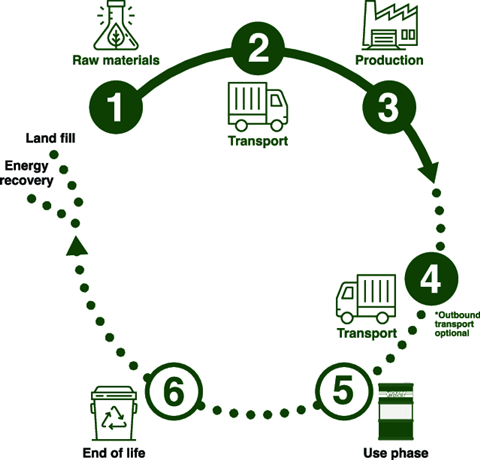For over 150 years, Vickers Oils has been a pioneer in the marine lubricants industry. In 2002, they made history by launching the world’s first biodegradable sterntube lubricant, HYDROX BIO.
Today, they continue to set the standard with a proactive approach to the Vessel Incidental Discharge Act (VIDA).

Understanding VIDA
The Vessel Incidental Discharge Act (VIDA) primarily impacts the regulation of discharges from vessels in U.S. waters, but its implications can also resonate within the European lubricant industry in several ways.
The Vessel Incidental Discharge Act (VIDA), enacted in December 2018 and finalised in September 2024, restructured the regulation of discharges incidental to the normal operation of vessels in U.S. waters. Replacing the EPA’s 2013 Vessel General Permit (VGP), VIDA mandates the use of Environmentally Acceptable Lubricants (EALs) for deck equipment above the waterline, where lubricant loss can occur, thereby expanding the definition of oil-to-sea interfaces. This shift from voluntary use to regulatory requirement marks a significant change for the maritime industry.
With a two-year plan for VIDA implementation, existing requirements from the EPA’s 2013 Vessel General Permit (VGP) and USCG ballast water regulations remain in effect.
While VIDA itself is a U.S. regulation, European lubricant manufacturers may need to align their products with similar environmental and safety standards to maintain competitiveness in global markets. This could lead to increased focus on ensuring that lubricants used in marine applications are compliant with both U.S. and European regulations.
The emphasis on reducing pollution from vessel discharges under the VIDA raises the bar for lubricant manufacturers to develop environmentally friendly products. This can accelerate innovation in biodegradable and less harmful lubricants, aligning with the European Union’s stringent environmental protection laws.
As ships and marine operators seek to comply with stricter discharge regulations, there may be increased demand for specialised lubricants designed to minimise environmental impact. This creates new market opportunities for lubricant producers that develop high-performance, eco-friendly products.
VIDA encourages consideration of the entire lifecycle of products used in vessels, including their environmental impacts during production, use, and disposal. This focus could shift how our European lubricant manufacturers approach product development, potentially leading to more sustainable practices.
European companies operating in international waters may need to collaborate with U.S. entities to ensure compliance with VIDA. This could lead to partnerships and shared best practices in developing lubricants that meet various regulatory standards.
Thus overall, while the VIDA is a U.S.-focused regulation, its principles can influence the European lubricant industry by driving innovation towards more sustainable products, shaping regulatory compliance strategies, and fostering international cooperation.
Vickers Oils’ Commitment
VIDA represents a major step toward efficient and effective regulation of vessel discharges, aiming to protect U.S. waters while simplifying compliance for the maritime industry. Vickers Oils will continue to support their customers with dedicated service, technical expertise, and EAL recommendations, helping them make informed decisions to ensure a smooth transition for deck equipment lubricants.
Vickers Oils offers a comprehensive range of EALs designed for various oil-to-sea interfaces, ensuring environmentally responsible lubrication solutions.
A significant milestone in their sustainability journey and an addition to the EAL offering is their capability to calculate partial Product Carbon Footprint (PCF). In July 2024, Vickers Oils finalised the capability to produce a partial Product Carbon Footprint (PCF) for a range of products.

This calculation is based on the ATEIL/UTEIL PCF methodology. Published in October 2023, it is an industry specific methodology designed to standardise the PCF calculations across the industry. The core of this methodology aligns with ISO 14067:2018 and the greenhouse gas product standard protocol. The partial PCF calculates the greenhouse gases emitted for 1 Kg of unpacked lubricant at a cradle-to-outbound gate boundary.
Mathew Evans, Head of Sustainability Task Force at Vickers Oils, commented, “Generating a Product Carbon Footprint (PCF) is crucial for understanding the carbon footprint of our products. This understanding helps us establish clear pathways to reduce emissions while consistently measuring our progress. It allows us to hold ourselves accountable, make informed decisions regarding our environmental impact, and proactively meet any future regulatory requirements that may mandate the calculation of a PCF.”
By embracing VIDA compliance and being at the forefront in calculating partial PCF for a range of products, Vickers Oils not only sets a benchmark for the industry but also reinforces their commitment to the vision of ‘Improving Our People Our Products, Our Planet.’
About Vickers Oils
Founded in 1828 and based in Leeds, UK, Vickers Oils remains a private, independent company led by the sixth and seventh generations of the family. Their commitment to quality, ethics, innovation, and service has established them as a reliable supplier of high-performance specialty industrial lubricants and greases. Over the past 25 years, they have delivered an award-winning range of EALs worldwide, and as they approach their 200th anniversary, Vickers Oils continues to set new standards across the industry.









